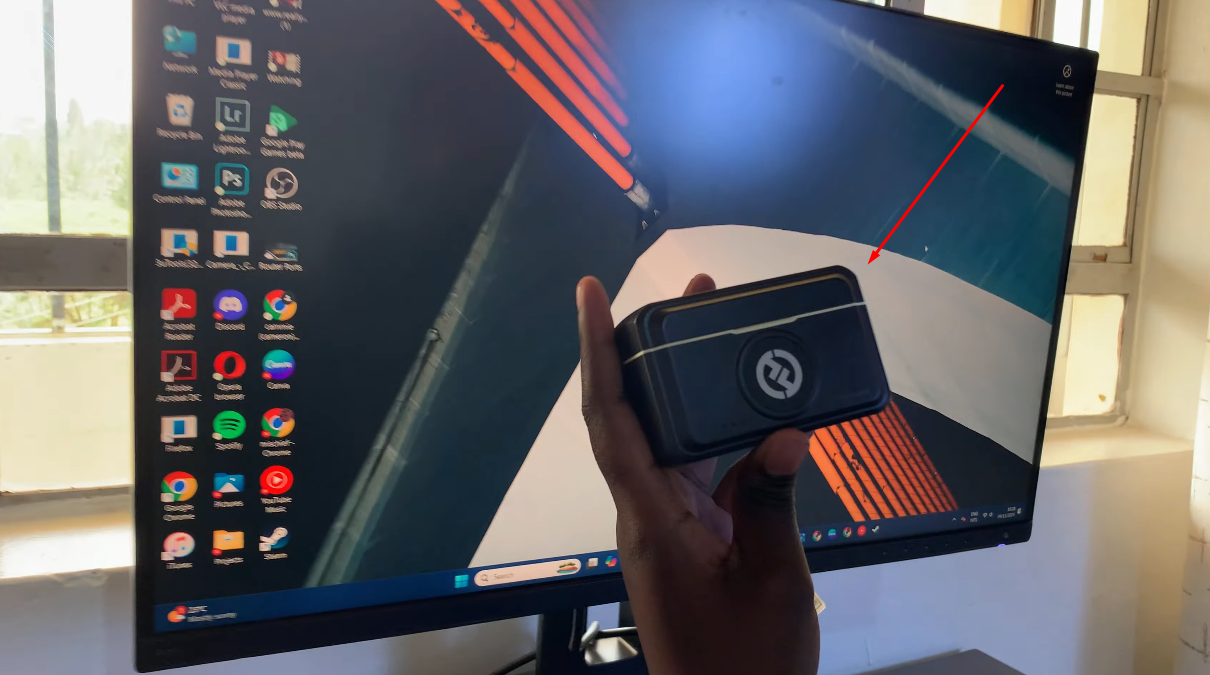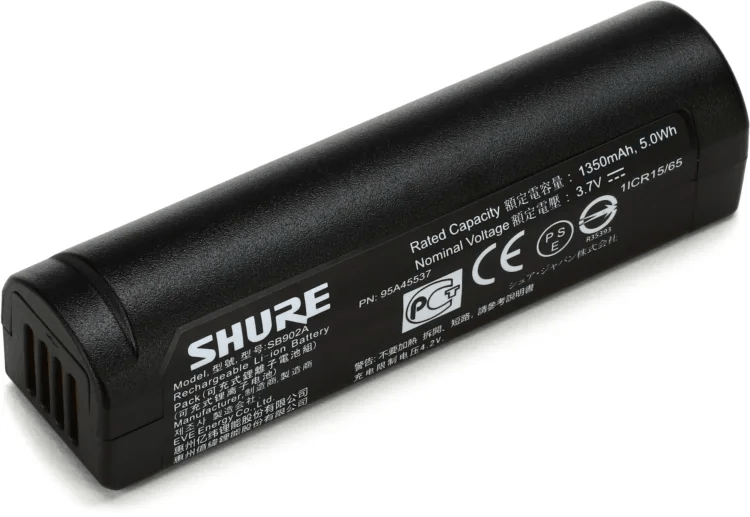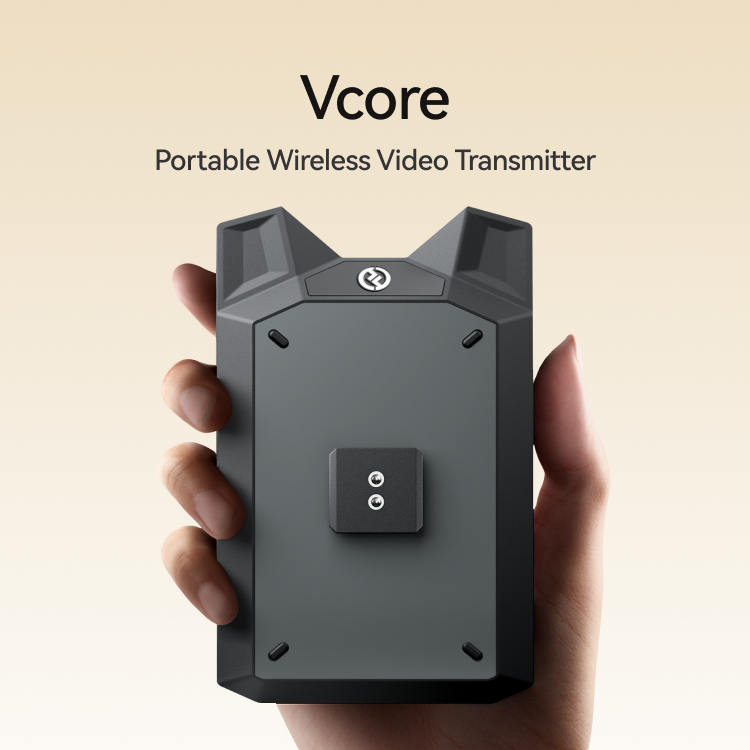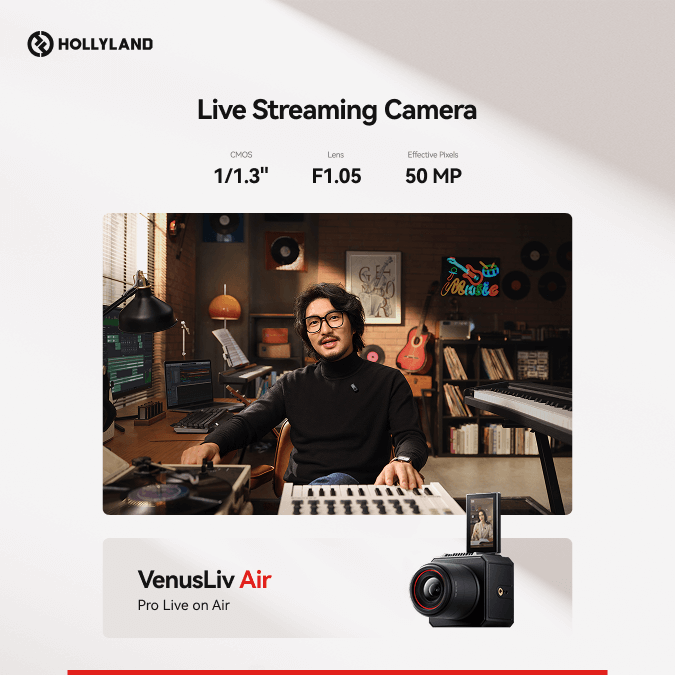When it comes to wireless microphones, the unsung hero of performance is undoubtedly the humble AA battery. The right batteries ensure your mic stays powered up, delivering clear, uninterrupted sound throughout your presentation, gig, or recording. But not all batteries are created equal—some offer longer life, some boast environmentally friendly credentials, and others provide consistent power in varying conditions. To guarantee your wireless microphone operates at its peak, selecting the best AA battery is essential. This review will guide you through the top picks, helping you find the perfect match to keep your voice heard loud and clear.
When choosing the best AA batteries for wireless microphones, several key criteria should be considered to ensure optimal performance and reliability:
- Battery Type: There are two main types of AA batteries – alkaline and rechargeable (such as NiMH – Nickel-Metal Hydride). Alkaline batteries are generally cheaper and have a longer shelf life but aren’t rechargeable. In contrast, NiMH batteries can be recharged hundreds of times, which may be more cost-efficient in the long run.
- Battery Life: The capacity of a battery, measured in milliampere-hours (mAh), indicates how long it can power a device before needing replacement or recharge. For wireless microphones, a higher capacity is preferable to ensure the battery lasts through the event or performance.
- Performance at High Drain: Wireless microphones can be considered high-drain devices since they require a steady amount of power to function optimally. Batteries that maintain a consistent voltage and perform well under high-drain conditions are ideal.
- Reliability and Consistency: Look for batteries from reputable brands that are less likely to leak and that guarantee consistent performance over many uses and in varying conditions.
- Environmental Impact and Cost-Effectiveness: Rechargeable batteries, while more expensive upfront, can be more environmentally friendly and cost-effective over time due to their lower waste and reduced need for frequent replacement.
By carefully evaluating these criteria, you can select the best AA battery to keep your wireless microphone functioning effectively throughout its use.
| Battery Brand & Type | Type | Voltage | Capacity (mAh) | Shelf Life | Number of Recharges | Price Range (Per 4-Pack)* |
|---|---|---|---|---|---|---|
| 1. Energizer Ultimate Lithium AA Batteries | Lithium | 1.5V | Non-applicable | 20 years | Non-rechargeable | $7 – $10 |
| 2. Duracell Procell Alkaline AA Batteries | Alkaline | 1.5V | Non-applicable | 7 years | Non-rechargeable | $5 – $8 |
| 3. AmazonBasics High-Capacity Rechargeable AA Batteries | Ni-MH Rechargeable | 1.2V | 2400 | 3 years (while stored) | Up to 1000 | $10 – $15 |
| 4. Panasonic Eneloop Pro AA Rechargeable Batteries | Ni-MH Rechargeable | 1.2V | 2550 | 5 years (while stored) | Up to 500 | $18 – $25 |
| 5. Rayovac Fusion Advanced Alkaline AA Batteries | Alkaline | 1.5V | Non-applicable | 12 years | Non-rechargeable | $5 – $7 |
*Prices are approximate and can vary.
To choose the best AA battery for your wireless microphone, consider how often you use the microphone, whether you prefer to dispose of batteries or recharge them, and the overall cost over time. Lithium batteries, like the Energizer Ultimate Lithium, usually offer a longer lifespan and better performance in extreme temperatures, making them suitable for high-drain devices like wireless microphones. Rechargeable batteries, such as the Panasonic Eneloop Pro, may have a higher initial cost but can save money in the long term due to their reusability. Alkaline batteries, like the Duracell Procell and Rayovac Fusion, are cost-effective and commonly used, but they typically do not last as long as lithium batteries in high-drain devices.
Energizer Ultimate Lithium AA Batteries
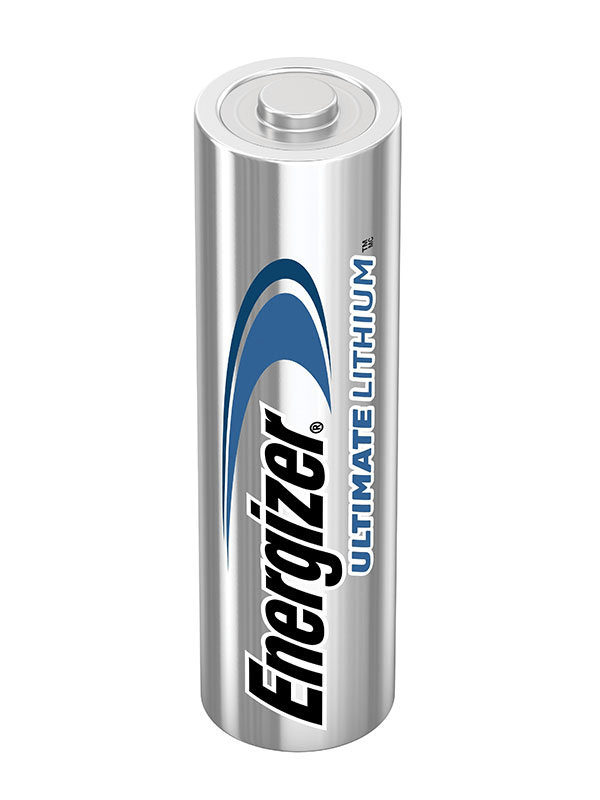
Overview:
When it comes to powering high-drain devices like wireless microphones, the Energizer Ultimate Lithium AA Batteries are an excellent choice. My experience with these batteries has been nothing short of outstanding. Unlike traditional alkaline batteries, these lithium ones provide a more reliable, longer-lasting charge, which is crucial during performances or presentations where you can’t afford any interruptions.
The Energizer Ultimate Lithium batteries are touted as the world’s longest-lasting AA batteries in high-tech devices, a claim that I’ve found stands up in practice. What impresses me the most is their performance consistency even under varying environmental conditions. Whether used in a cold outdoor setting or a warm indoor venue, they maintain their charge and deliver consistent power, ensuring that your wireless microphone doesn’t cut out at the worst possible time.
Specs:
- Battery Type: Lithium
- Voltage: 1.5V
- Weight: 14.5 grams per battery
- Shelf Life: 20 years
Pros:
- Exceptional longevity, meaning fewer battery changes and less worry about your microphone dying mid-use.
- Great performance in extreme temperatures, making them versatile for all sorts of events.
- Lightweight, which is great when portability is a concern.
- They have a leak-proof construction, providing peace of mind that your valuable devices are safe.
Cons:
- They’re more expensive than traditional alkaline batteries, so there’s a higher upfront cost.
- Non-rechargeable, so while they last a long time, they’re not the best choice for those looking to minimize waste and ongoing costs.
Price:
The price of Energizer Ultimate Lithium AA Batteries can vary depending on where you purchase them, but you can expect to pay a premium due to their high performance. They are generally sold in multipacks, and the per-battery cost is typically higher than for regular alkaline batteries. However, this cost is often justified by their extended lifespan.
Personal Opinion:
Overall, if you are prioritizing performance and reliability for critical events where a wireless microphone is essential, the Energizer Ultimate Lithium AA Batteries should be your go-to choice. While the initial cost may be a con, the pro of having a worry-free, long-lasting battery often outweighs the higher price tag. As someone who values dependability above all, I highly recommend investing in these batteries for your high-drain devices. Their no-surprise, consistent output provides you with one less thing to worry about during your important moments.
Duracell Procell Alkaline AA Batteries
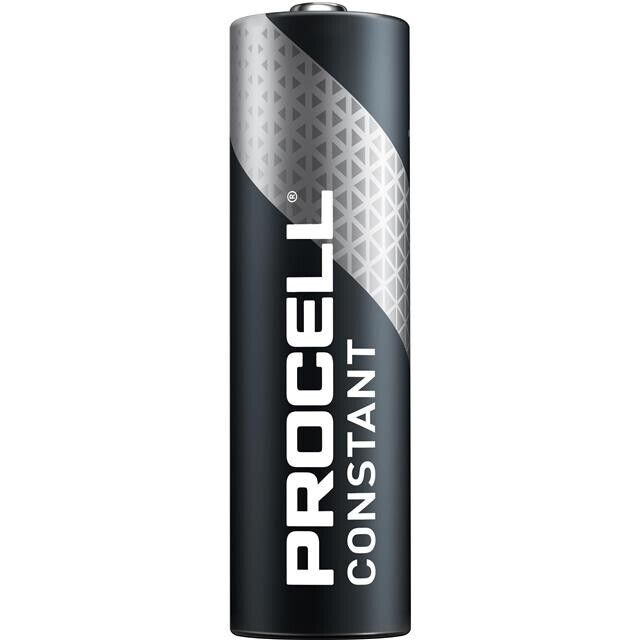
Overview
Duracell Procell Alkaline AA batteries are a go-to for users who need reliable and long-lasting power for their wireless microphones, especially when reliability cannot be compromised, such as in live performances or crucial recording sessions. These batteries are specifically designed for professional use, and they have garnered a reputation for consistency and durability.
In my experience, the Duracell Procell batteries stand out for their focused design on high-drain devices like wireless microphones. They seem to have a knack for holding their voltage for longer periods under the constant draw, which is critical for avoiding audio dropouts. Unlike their consumer-grade counterparts, these are engineered with the demands of professional electronics in mind.
Specs
While detailed specifications like the exact milliamp-hour (mAh) rating aren’t typically published for alkaline batteries, the essential aspect to know about the Duracell Procell is that they are built to offer higher capacity and longer lasting power under the variable loads that come with professional wireless microphone use.
Pros:
- Reliable performance under the heavy and inconsistent load of a wireless microphone.
- Resistant to leaks, which is a relief given that battery leaks can damage expensive wireless equipment.
- Designed for industrial and professional use, meaning they have raised quality control and construction standards.
Cons:
- Not rechargeable, which could be a drawback for users concerned with waste and ongoing costs.
- May be pricier than consumer-grade batteries, but given their performance and reliability, the investment often pays off for professional users.
Price
The Duracell Procell AA batteries are relatively affordable, generally costing somewhat more than consumer-grade alkaline batteries. The exact price can vary based on where you purchase them and the quantity you buy. Buying in bulk often results in better per-unit pricing, which can be a wise move for frequent users.
In my view, the slightly higher cost is justified by their predictable and consistent performance — essential in situations where battery failure is not an option. For professional applications, the balance between cost and reliability tilts heavily towards reliability, making the Duracell Procell batteries an excellent choice for those who cannot afford interruptions in their audio feed.
AmazonBasics High-Capacity Rechargeable AA Batteries
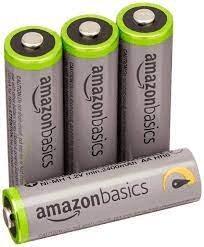
Overview:
The AmazonBasics High-Capacity Rechargeable AA Batteries strike a fine balance between quality and cost-effectiveness. Designed for consumers who are environmentally conscious and prefer reusing their batteries instead of disposing of them after one use, these batteries are an excellent choice for wireless microphones and other high-drain devices. With a decent charge capacity, they ensure that your microphone stays powered for extended periods, reducing the need for frequent battery swaps during critical moments such as live performances or presentations.
Specs:
- Battery Type: Ni-MH (Nickel-Metal Hydride)
- Capacity: up to 2400mAh
- Recharge cycles: up to 1000
- Pre-charged: Yes, with solar energy
Pros & Cons:
Pros:
- The high-capacity design ensures long-lasting performance, which is crucial for devices like wireless microphones that require consistent power to operate.
- With up to 1000 recharge cycles, these batteries are not only cost-effective in the long run but also contribute to reducing electronic waste.
- They come pre-charged and can be used straight out of the package, which adds a layer of convenience for immediate needs.
- These batteries retain their charge well when not in use, which is beneficial for those who might not use their wireless microphone frequently.
Cons:
- While they boast a high number of recharging cycles, their overall lifespan may fall short when compared to some higher-end rechargeable batteries, depending on usage intensity.
- The performance might degrade quicker than premium brands in high-drain situations, which could be a concern for professionals relying on their equipment in long sessions or back-to-back events.
Price:
For the frugal shopper, AmazonBasics High-Capacity Rechargeable AA Batteries offer a sweet spot in pricing. They are usually more affordable than some of the top-tier brands while still providing reliable performance. The exact price may vary depending on the pack size and retailer, but they generally present a cost-efficient solution for frequent battery users.
In my opinion, if you’re looking for batteries for a wireless microphone that won’t be heavily used on daily long-hour operations, the AmazonBasics High-Capacity Rechargeable AA Batteries are a smart pick. They provide the convenience and reliability needed for moderate use while keeping an eye on the budget and environmental impact.
Panasonic Eneloop Pro AA Rechargeable Batteries
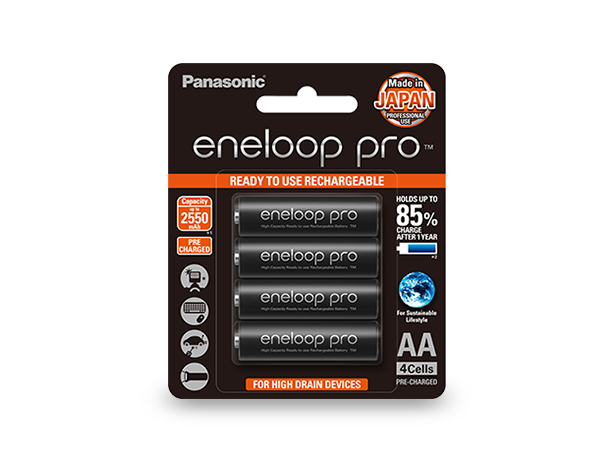
Overview
The Panasonic Eneloop Pro AA batteries are a standout choice for powering high-drain devices, like wireless microphones. In the world of rechargeable batteries, these are acclaimed for their long-lasting charge and durability. What I particularly appreciate about the Eneloop Pro series is their ability to maintain a significant amount of their charge even after months of non-use. This means they’re ready to go when you’re on the move or you suddenly find the need to replace your wireless microphone battery mid-presentation or performance.
Specs
- Battery Type: Rechargeable Ni-MH (Nickel-Metal Hydride)
- Capacity: 2550mAh
- Voltage: 1.2V
- Recharge Cycle: Up to 500 times
- Retention: Retains 85% charge after a year of non-use
Pros:
- High capacity, making them perfect for devices that require a lot of power.
- Retain their charge very well when not in use, minimizing the chances of a dead battery when you need it most.
- Rechargeable up to 500 times, which can save money and be more eco-friendly over time compared to disposables.
- Low self-discharge rate ensures long shelf life, adding to their reliability.
Cons:
- Higher upfront cost compared to some standard alkaline batteries.
- Require a suitable charger, which is an additional investment if not already owned.
- As they are Ni-MH, their voltage is slightly lower (1.2V) compared to traditional alkaline batteries (1.5V), although this is often not an issue for most devices.
Price
While Eneloop Pro batteries are pricier than some of their competitors, they offer excellent long-term value. For a pack of 4 AA batteries, prices can range depending on the retailer, but they generally come in around $18-$25. The initial investment might seem steep, but when considering their rechargeability and longevity, users will find these batteries to be cost-efficient in the long run.
In my opinion, the Panasonic Eneloop Pro AA batteries are an investment in convenience and performance. They’re kind of like the high-performance tires of the battery world – you put them in your wireless microphone, and suddenly it’s as if you’ve upgraded the whole device. Their reliability means less worry about dropouts or power issues during important events, making them a top pick for professionals and tech enthusiasts alike.
Rayovac Fusion Advanced Alkaline AA Batteries
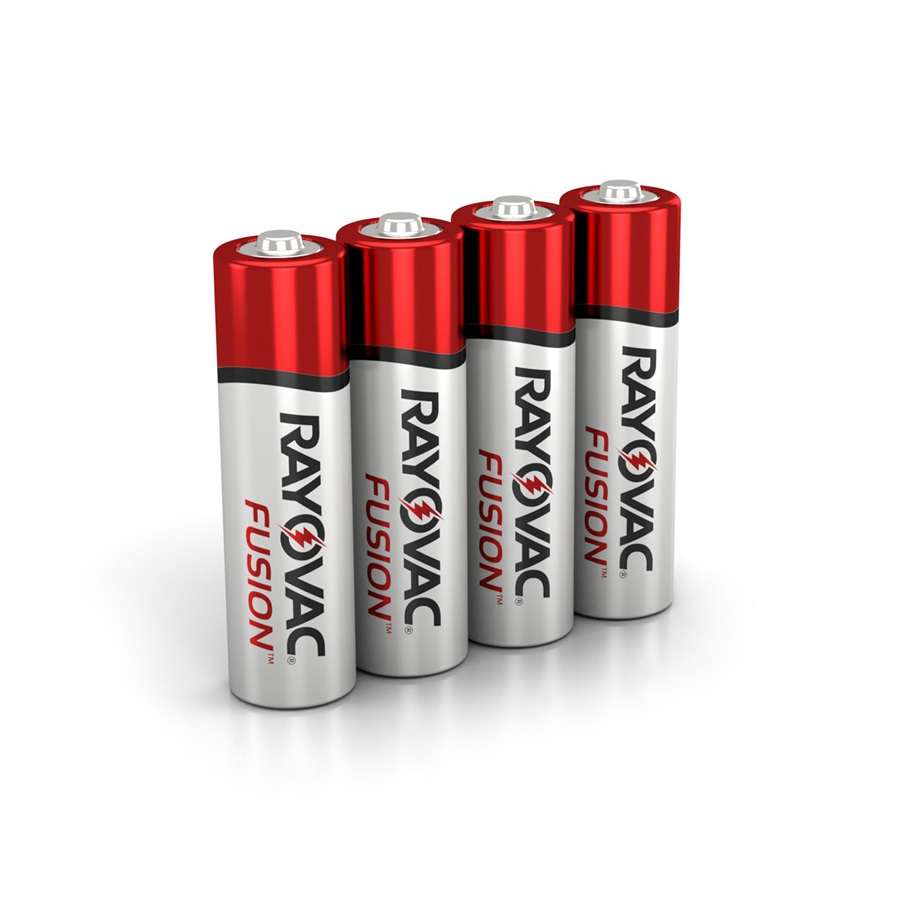
Overview
Rayovac Fusion Advanced Alkaline AA Batteries stand out in the crowded market of AA batteries, specifically designed for high-drain devices like wireless microphones. What makes them a contender for the best is their balance between affordability and reliability.
From my experience, I’ve found that Rayovac Fusion batteries tend to hold up remarkably well during live performances and extended use cases. They seem to offer a steady flow of power, reducing the likelihood of unexpected dropouts or power loss during critical moments – any public speaker or performer’s nightmare. The packaging offers a no-nonsense appeal, and the batteries themselves have a distinctive look that sets them apart from the often indistinguishable competition.
Specs
- Battery Type: Alkaline
- Voltage: 1.5V
- Capacity: Not publicly specified, but high-performing in high-drain devices
- Shelf Life: Stated to hold power for up to 12 years in storage
- Recommended Use: High-performance gear such as wireless microphones, cameras, and controllers
Pros
- Longevity: These batteries tend to last impressively long during use in high-drain devices.
- Consistency: They provide a consistent and reliable power output, reducing performance hiccups.
- Price: They are more budget-friendly than some of the premium options while keeping up in terms of performance.
- Availability: Widely available both online and in physical retail stores.
Cons
- Power Disclosure: Rayovac doesn’t specify exact capacity, which might be a downside for those looking to compare exact specifications.
- Not Rechargeable: As with most alkaline batteries, these are one-time-use, which may not suit everyone’s need for a sustainable and rechargeable option.
Price
The Rayovac Fusion Advanced Alkaline AA Batteries are competitively priced, often found to be less expensive than some of the premium lithium options. They strike a smart balance between cost and performance, giving you value for your investment without breaking the bank. Prices can vary, but generally, they’re placed in the mid-range cost bracket, often available in bulk packs which further increases their cost-effectiveness.
In conclusion, the Rayovac Fusion Advanced Alkaline Batteries are a solid choice for those looking for a reliable power source for their wireless microphones without spending a premium. Their performance is commendable, and while they might not have the rechargeable convenience or the exacting specifications that tech enthusiasts might yearn for, they make up for it in their robustness and affordability.
Conclusion
In conclusion, choosing the best AA battery for your wireless microphone is crucial for ensuring reliable performance and sound quality. While we’ve reviewed several top-notch options, consider factors like battery life, rechargeability, environmental impact, and cost-effectiveness when making your choice. Remember, investing in the right batteries not only saves you money in the long run but also keeps your presentations and performances uninterrupted.
While quality AA batteries ensure your microphones run smoothly, upgrading to a reliable wireless lavalier microphone can significantly elevate the audio quality of your productions. Offering excellent clarity and ease-of-use, a wireless lavalier mic complements your battery choices, ensuring professional-level sound at every event.
FAQs
Q: Can I use rechargeable AA batteries in my wireless microphone?
A: Yes, you can use rechargeable AA batteries in your wireless microphone. They are cost-effective and environmentally friendly, but make sure they are compatible with your device.
Q: How long do AA batteries last in a wireless microphone?
A: Battery life varies depending on the brand, capacity, and discharge rate. Typically, a good quality alkaline AA battery can last between 4 to 8 hours, while a high-capacity rechargeable battery might last longer.
Q: Are there specific brands of AA batteries recommended for wireless microphones?
A: While no brand is universally the best for all wireless microphones, look for reputable brands such as Duracell, Energizer, Panasonic, and Eneloop that are known for their long-lasting and reliable battery performance.
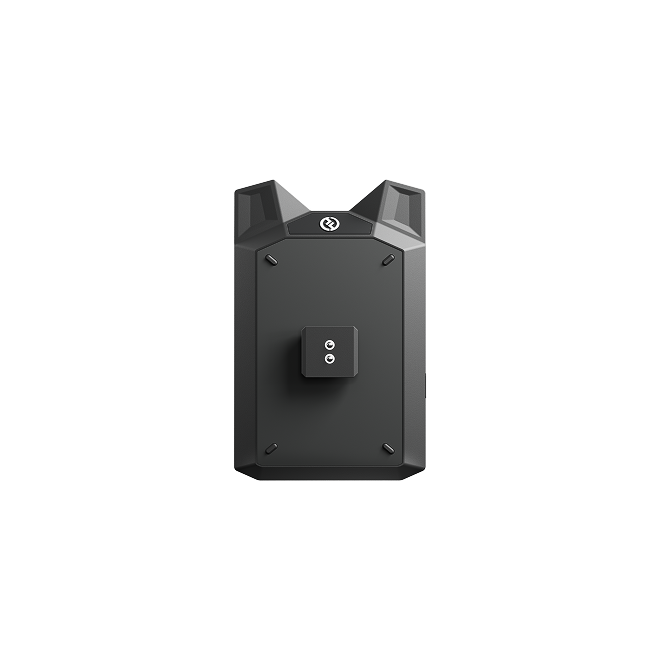

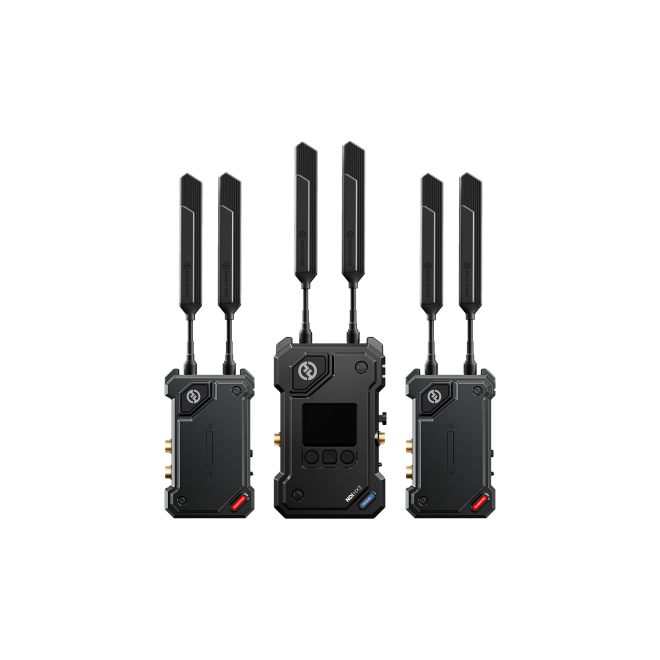
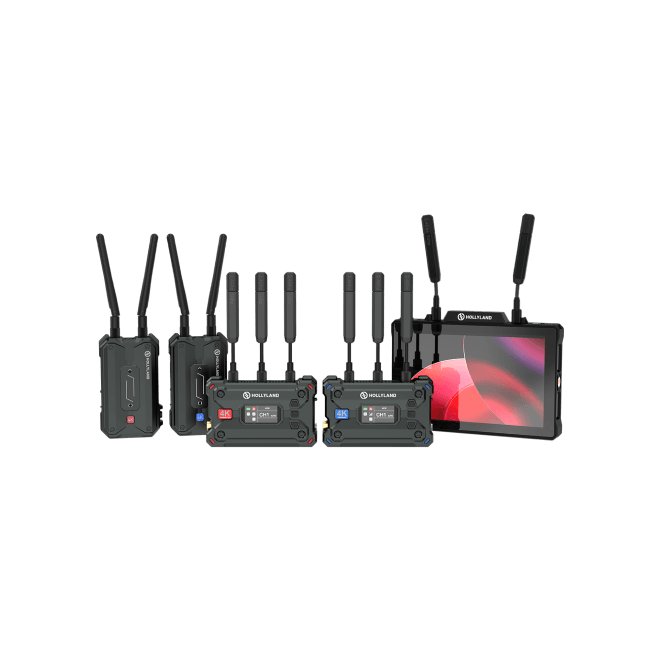
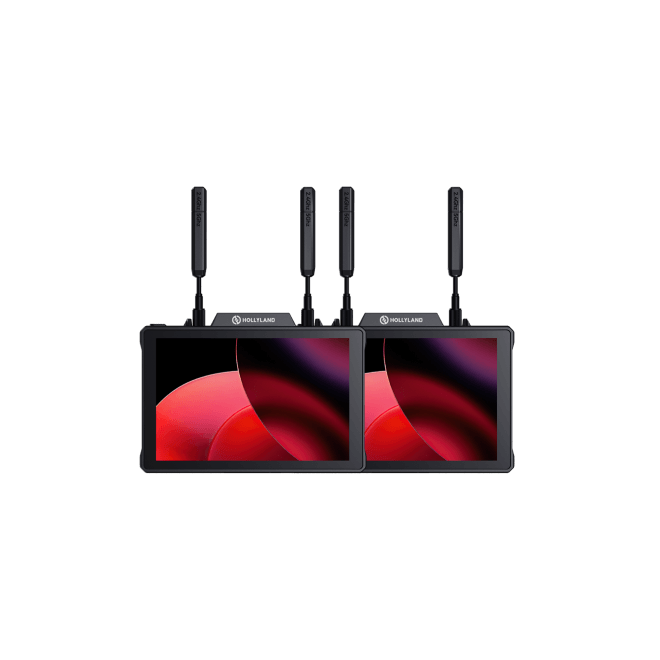
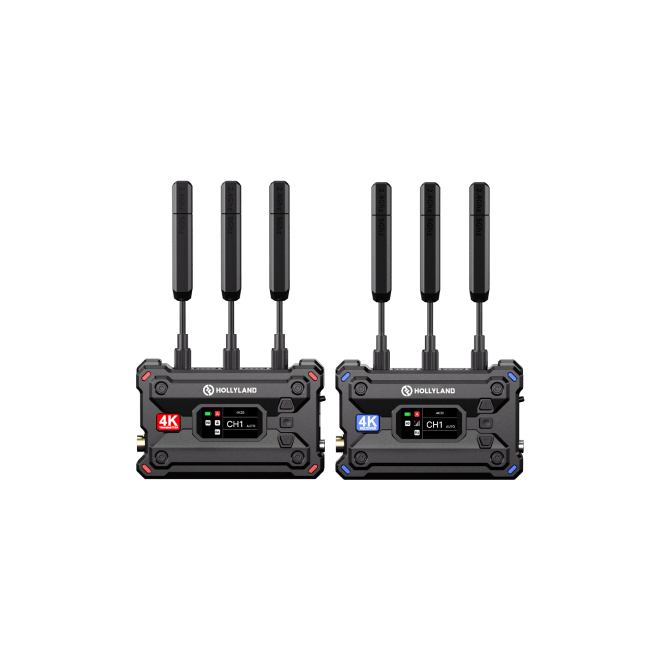
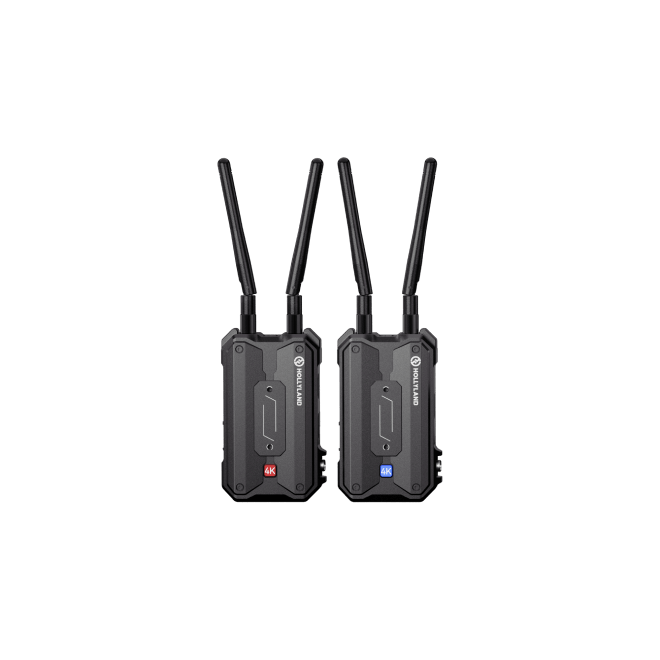
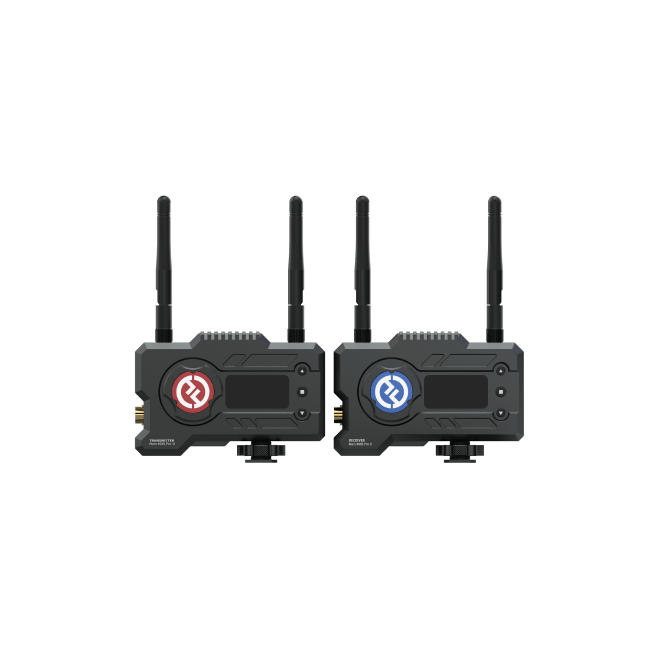
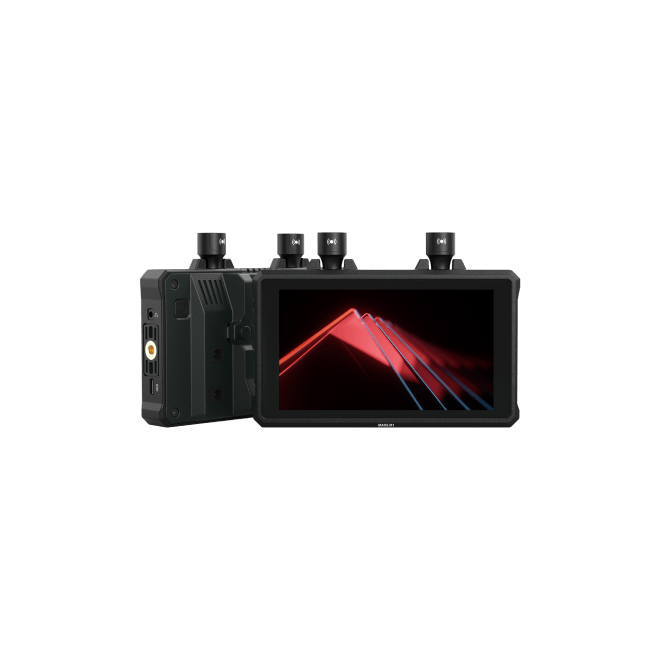
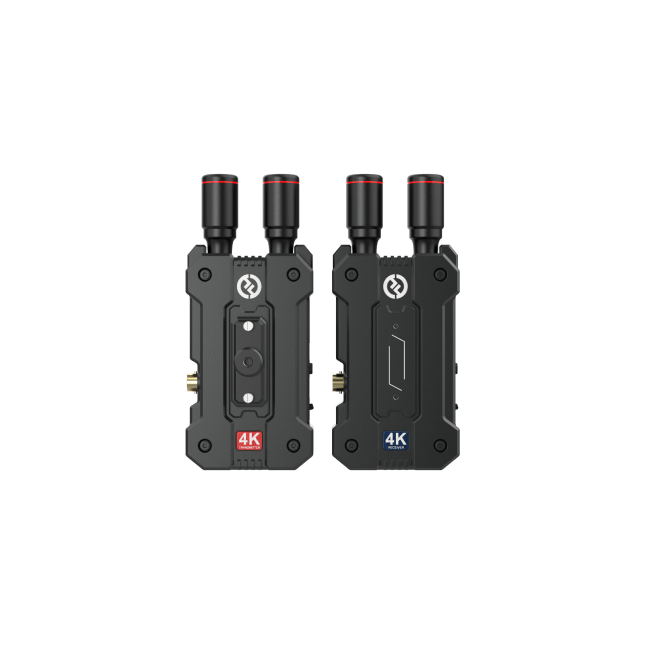
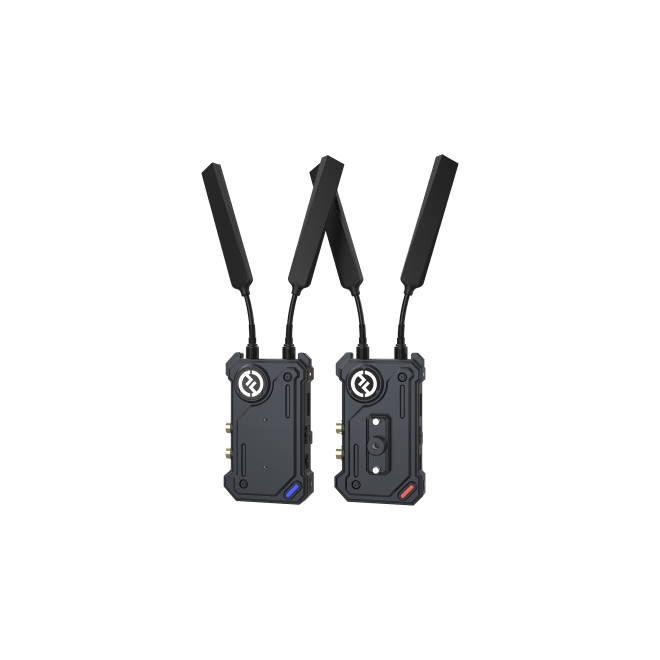
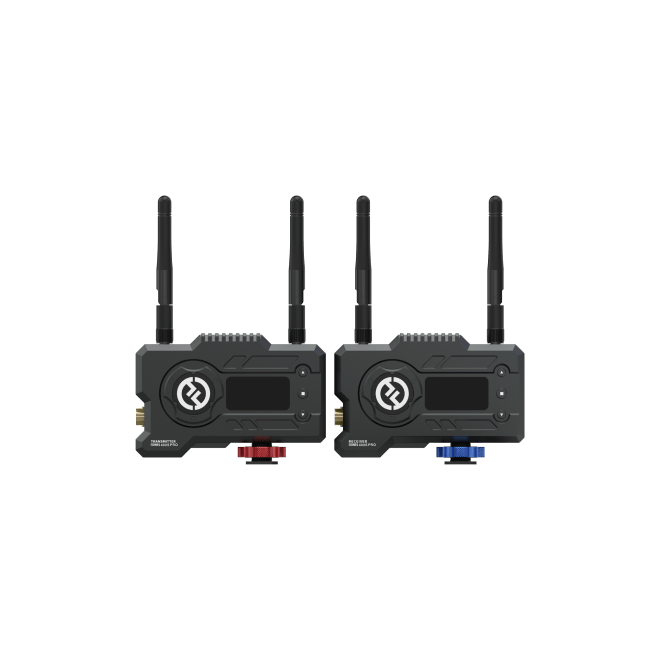
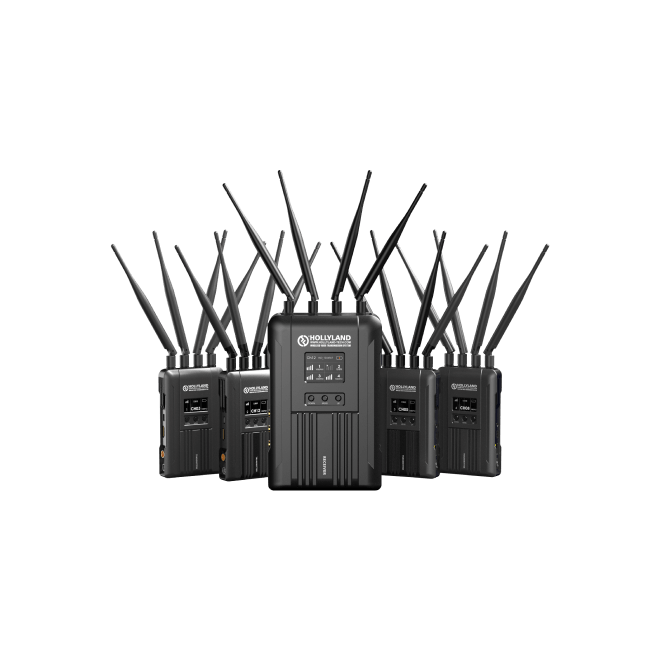

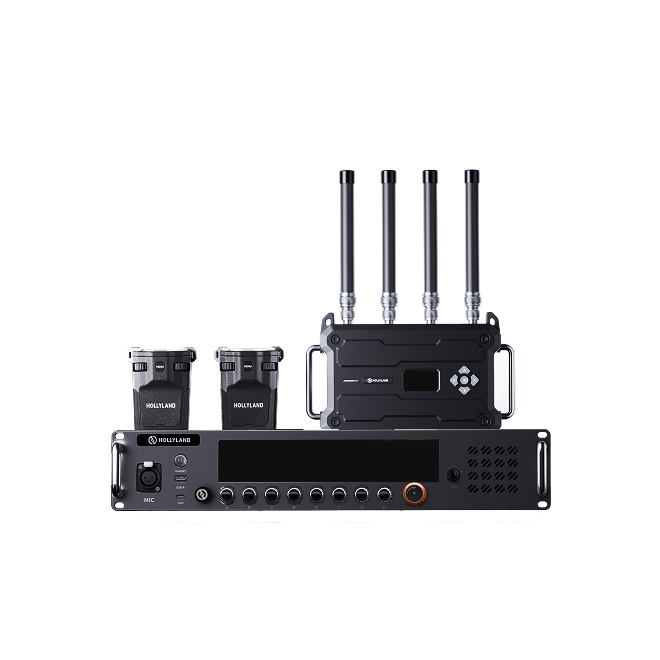

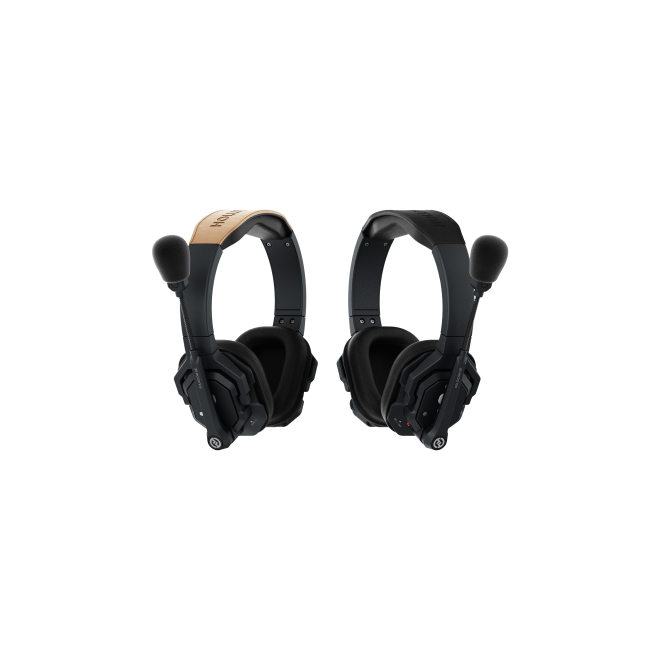

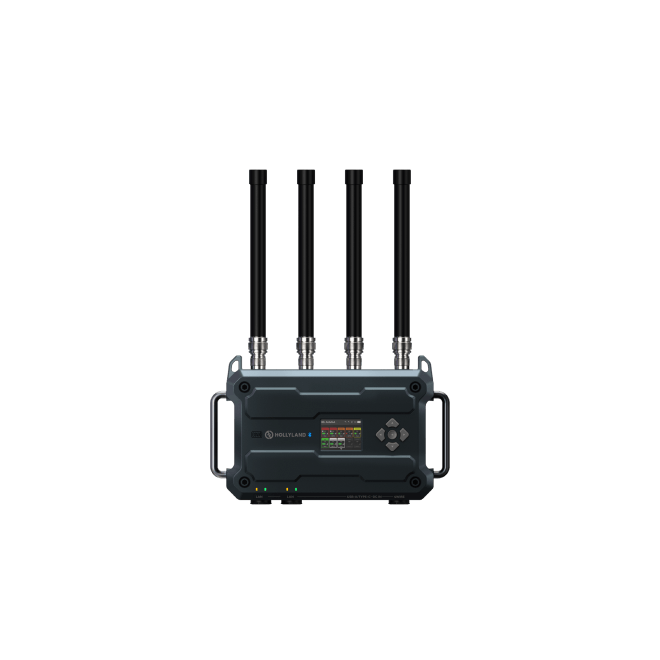
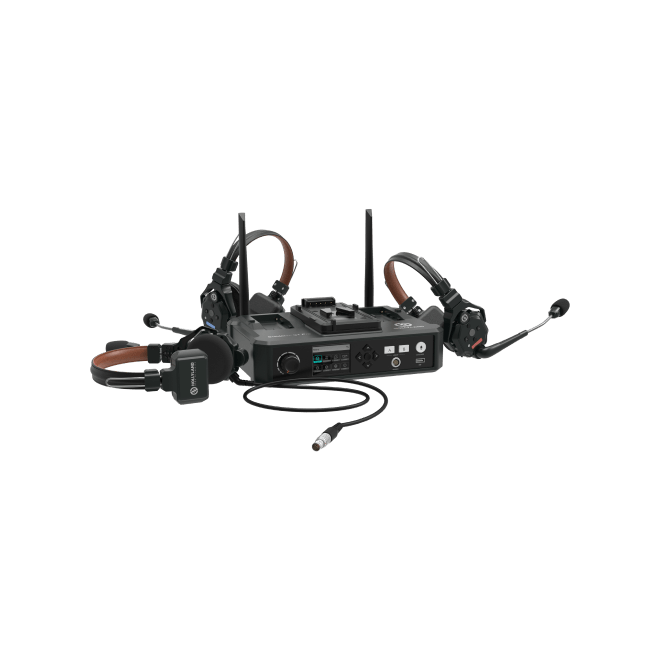
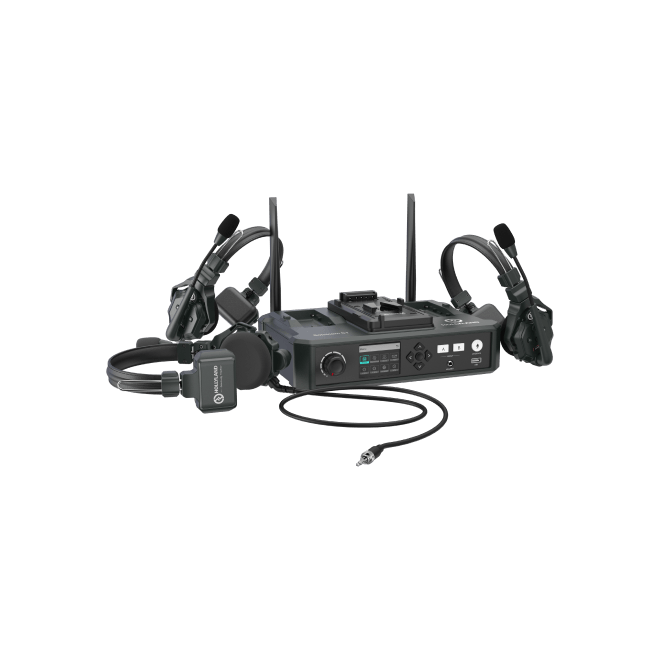
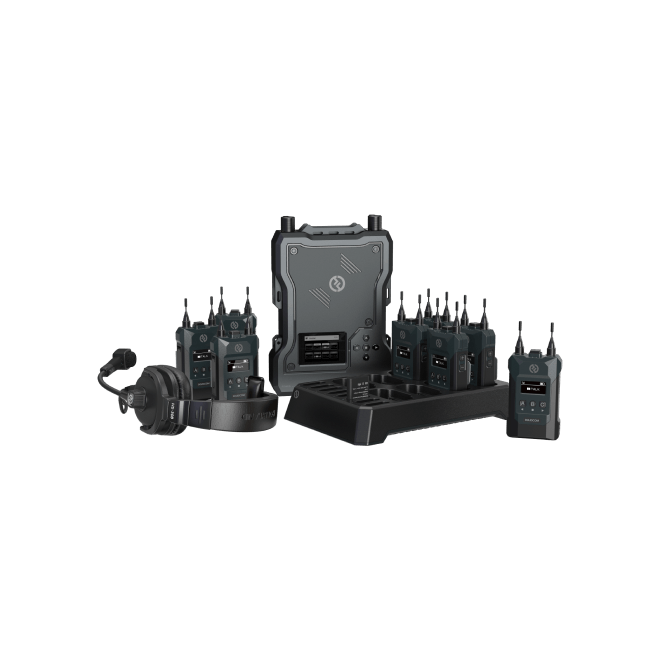
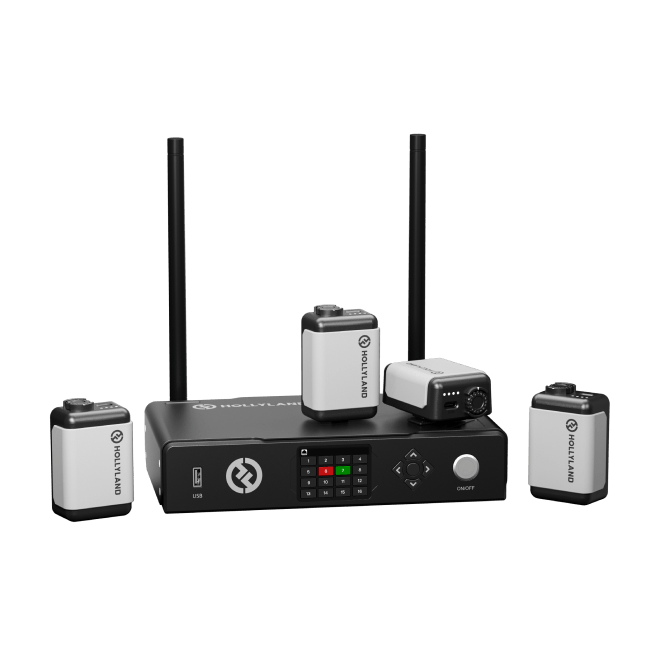
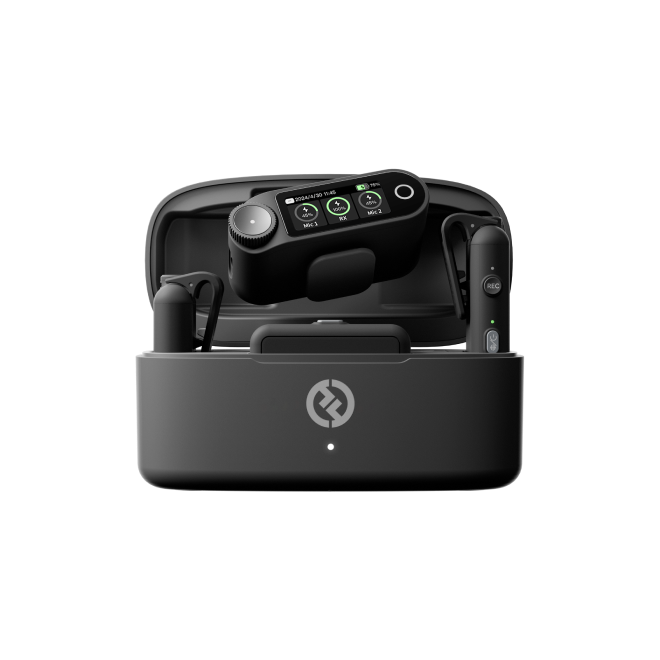
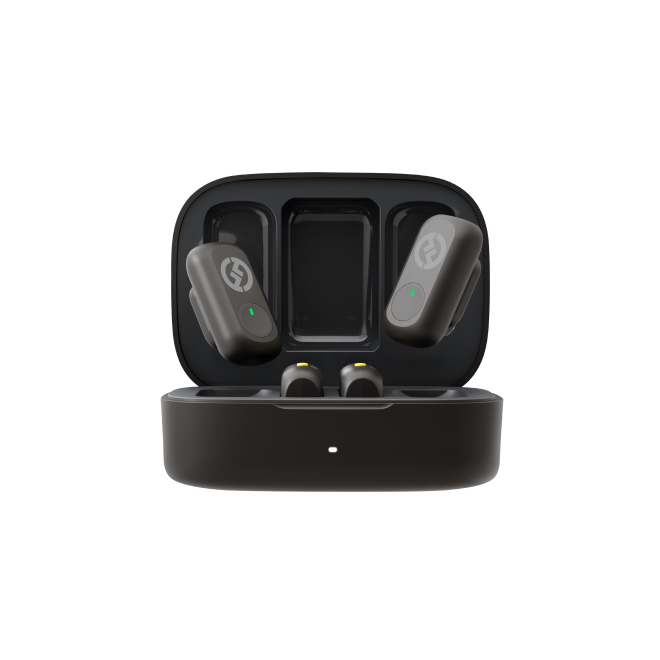

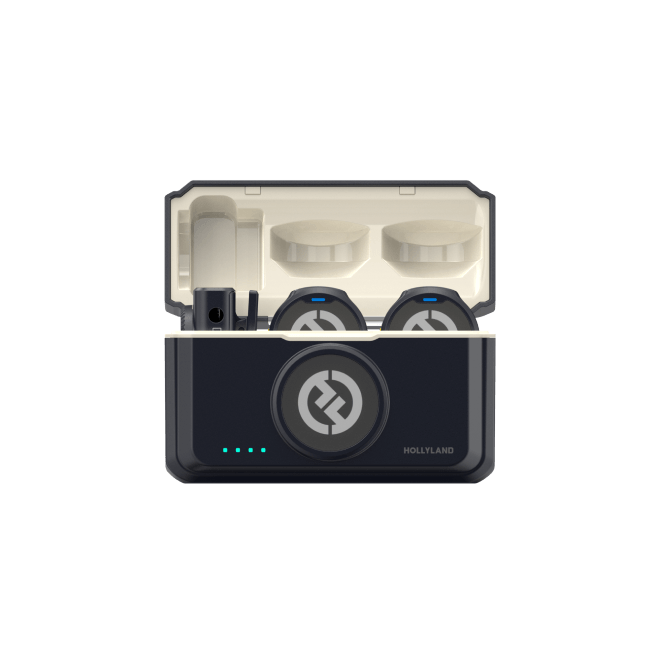
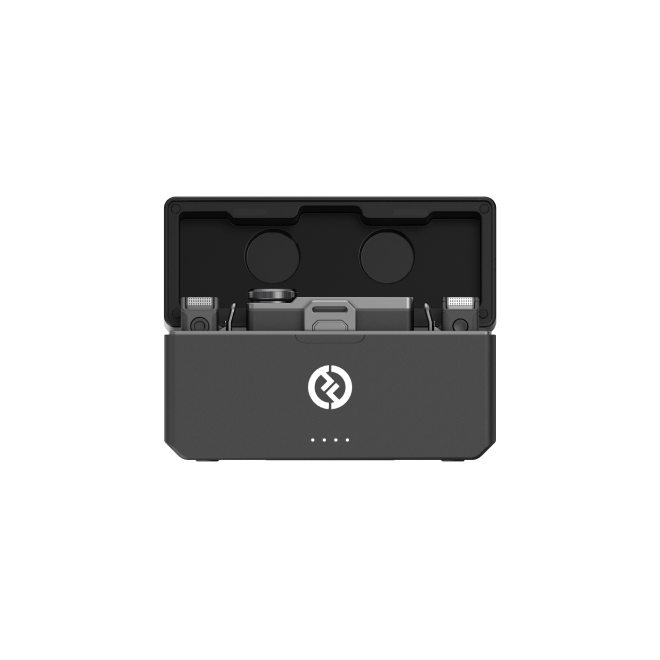
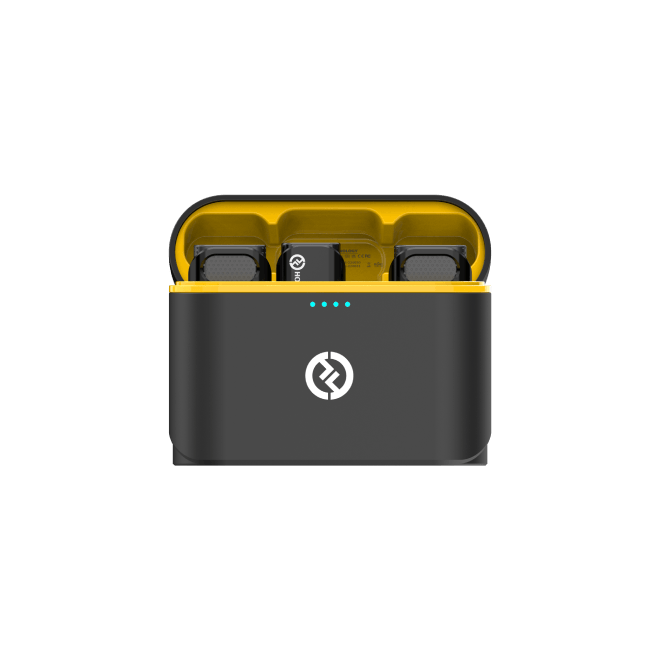
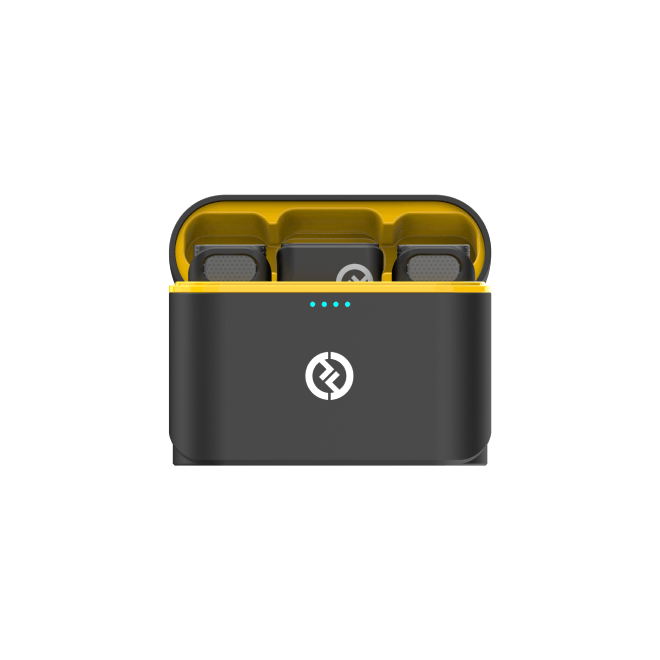
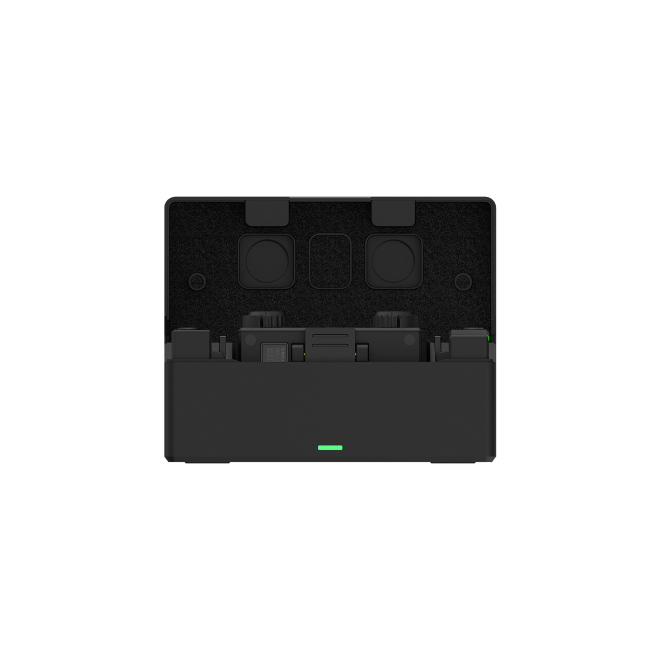
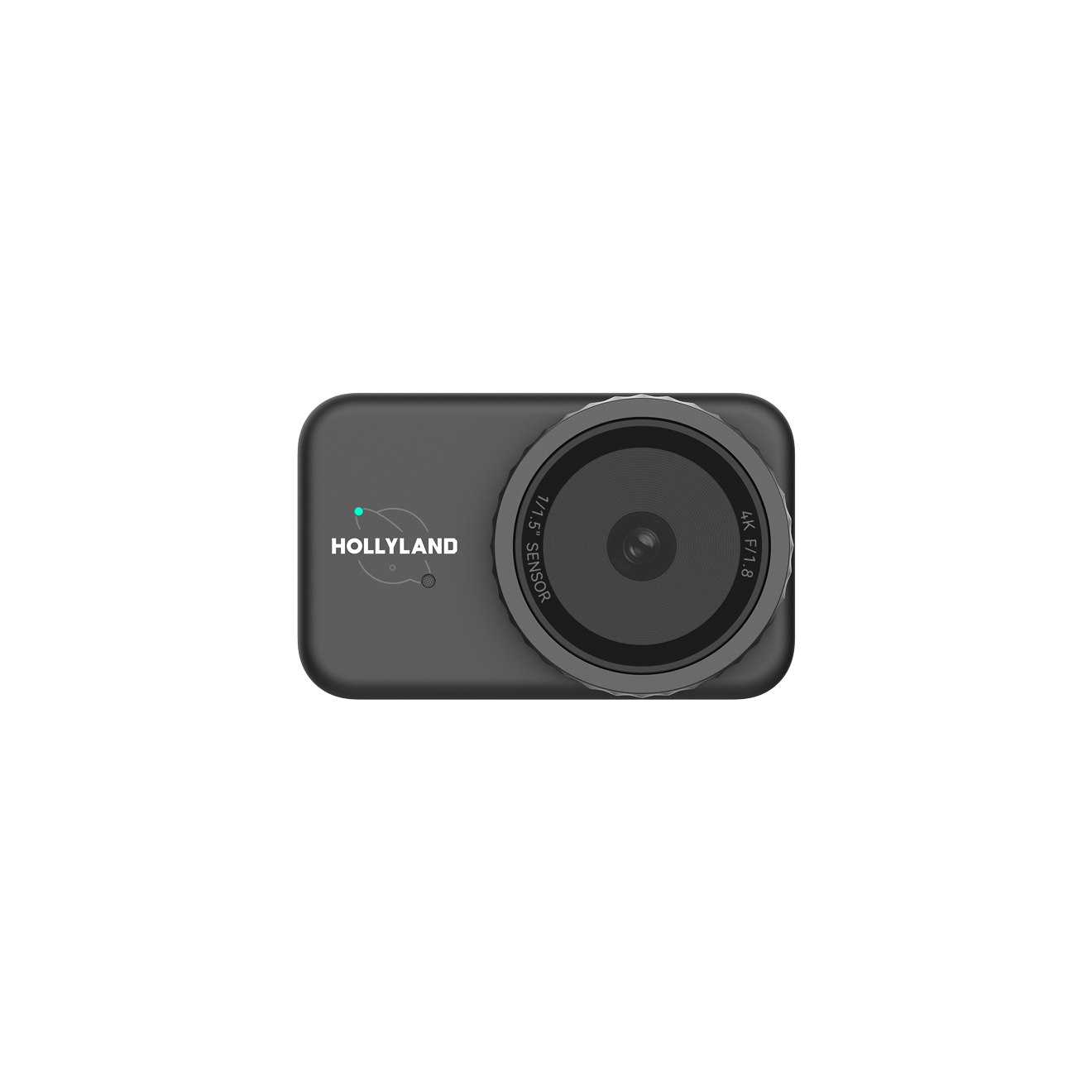

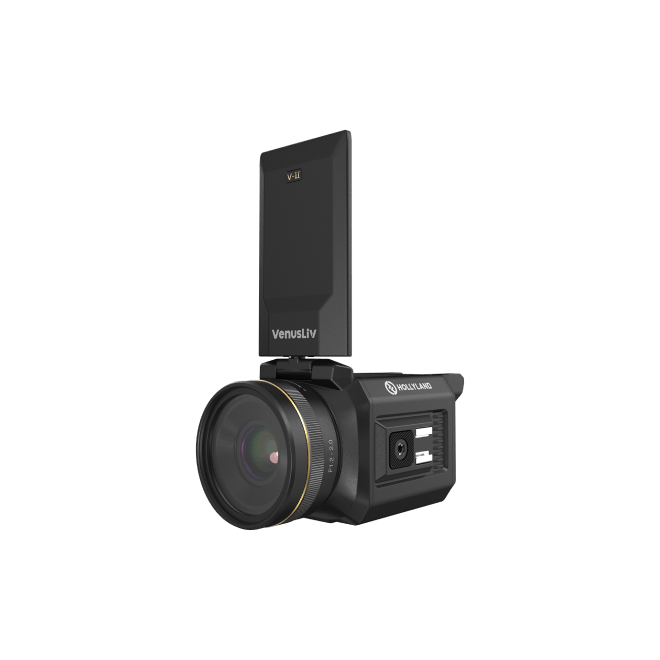
.png)


